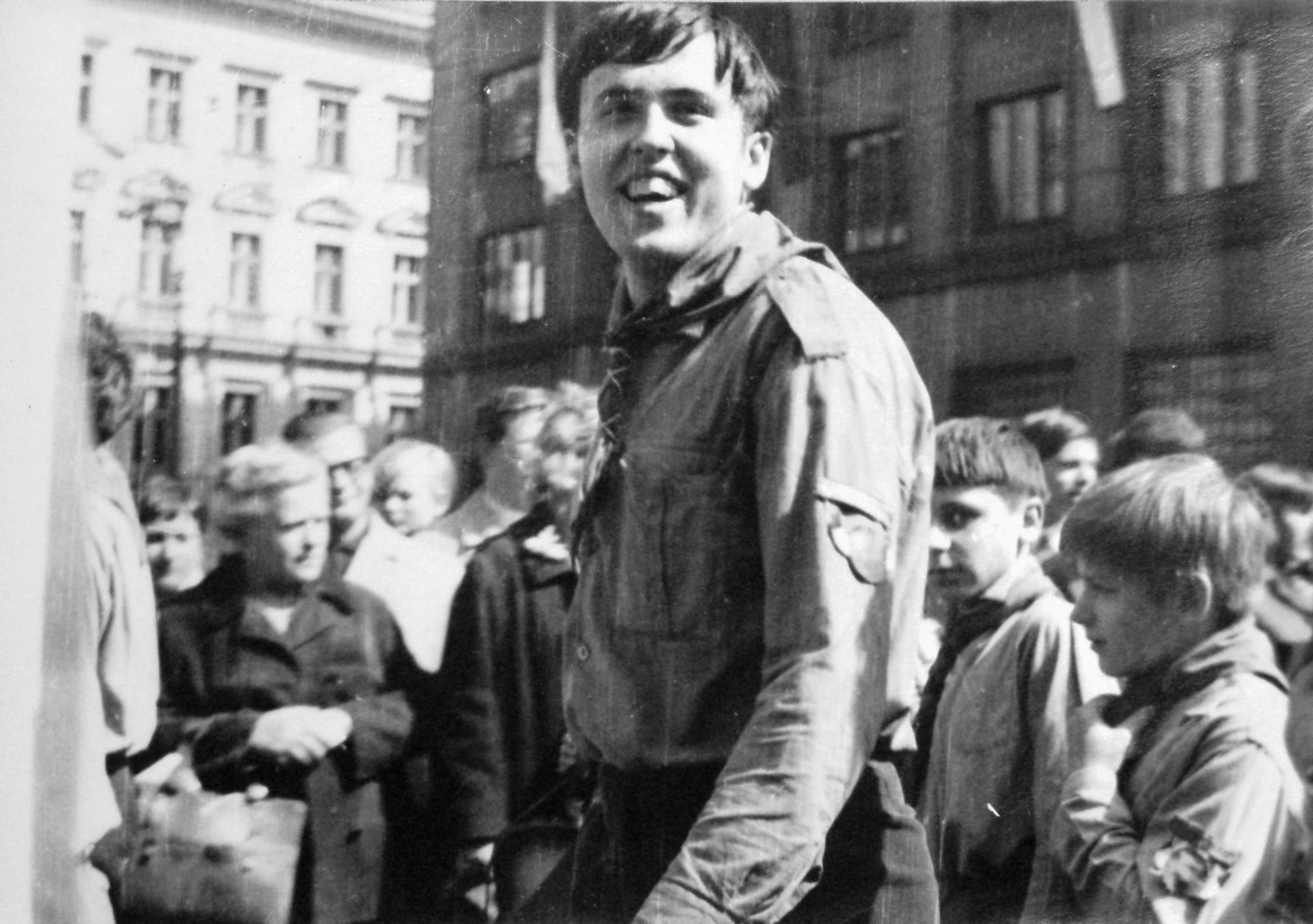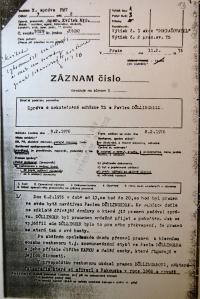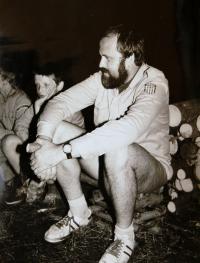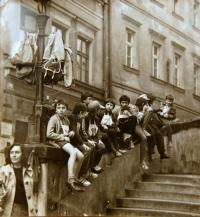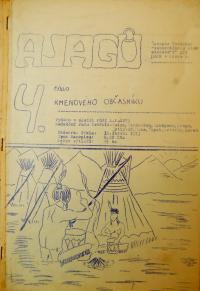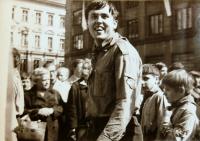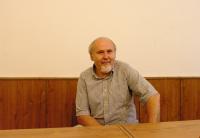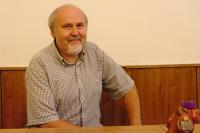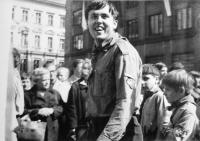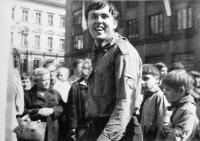Scouting is based on spiritual fundamentals, that’s where Truth and Love came from.
Pavel Döllinger was born June 21, 1949 in Prague. He has one brother, Antonín, who is seven years older. His father Antonín, who died in 1954, had been a Communist Party official; after his death the children were brought up by their mother. Pavel learnt to be a cook and he became attracted to the ideals of scouting. He founded and led several scout troops, even in the 1970s, when one’s involvement in the illegal scouting movement brought upon the increased attention of the communist Secret Police. In the late 1980s he was a co-founder of the scouting magazine ČIN. After 1990 he became the chairman of the district council in Prague 2.
